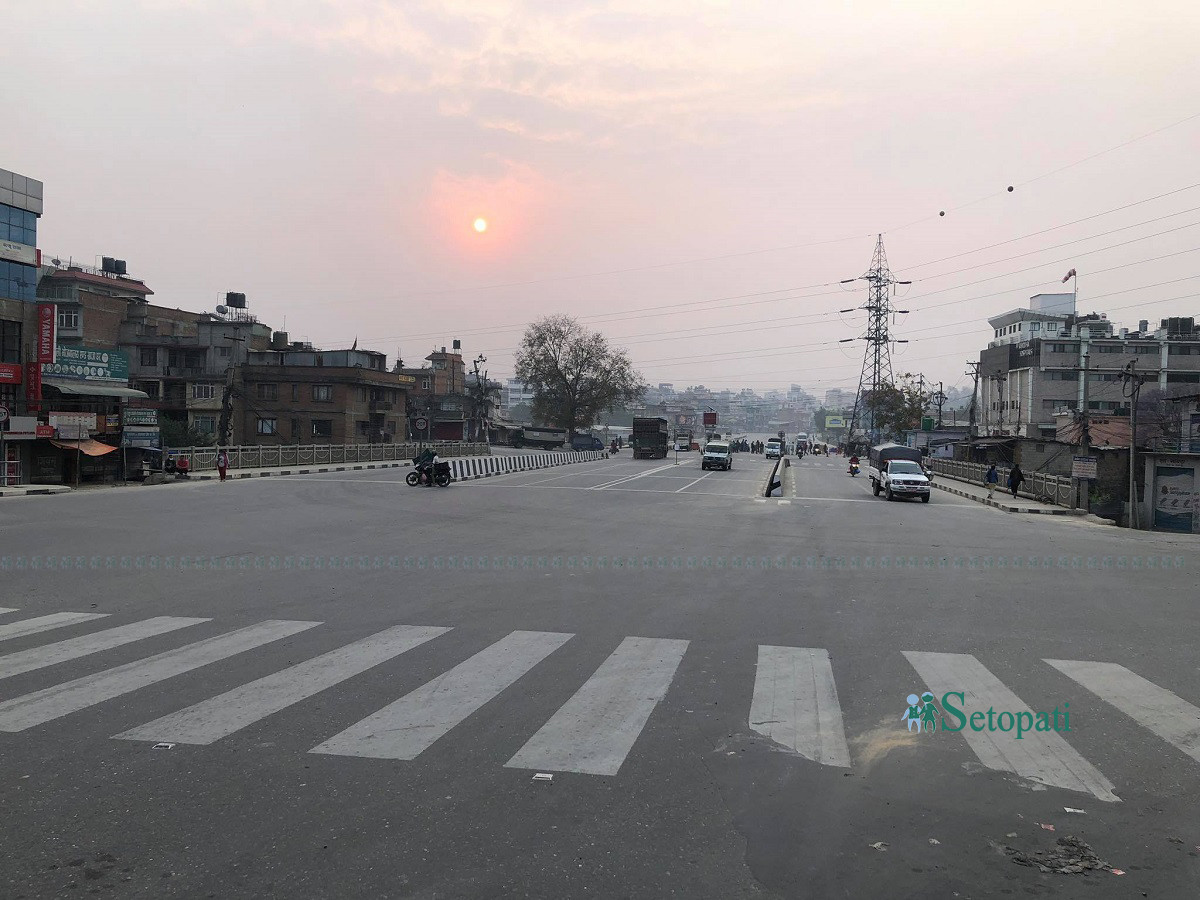The ongoing prohibitory orders enforced in the Kathmandu Valley have been extended by a week. The prohibitory orders that started first on April 29 will now be in place until June 21.
Chief district officers (CDO) of the three districts in the Kathmandu Valley have opted for a one-week extension relaxing some of the restrictions after a meeting on Sunday.
Bhaktapur CDO Prem Prasad Bhattarai said vegetable shops, dairies and those selling meat and fish, and book stores, that are currently allowed to open until nine in the morning, will be allowed to open until 11 in the morning during the extended period. Similarly, shops that sell essential items for development and construction works will be allowed to open from four in the afternoon.
Development and construction works will have to be done during the night and workshops will also be allowed to open during the night.
People will also be allowed to go out for morning and evening walks during the extended period. CDO Bhattarai said the administration will issue circular to the police chief in the respective districts to not stop people walking in the morning and evening following safety protocols.
He added that take-away service by hotels and restaurants will be continued while hotels will be allowed to work from seven in the morning for online delivery.
He revealed that restrictions have also been relaxed a bit for banks and financial institutions. The administration has currently set a limit on number of branch offices that can be opened in the three districts on the basis of their category.
The administration has decided to extend prohibitory orders pointing that the infection rate has not significantly fallen despite fall in mortality rate.
Kathmandu CDO Kali Prasad Parajuli pointed that the prohibitory orders have to be extended as test positivity rate in the Valley is still around 22-30 percent like in the rest of the country.
He claimed that there is international practice of relaxing restrictions after the test positivity rate falls below five percent and added that the positivity rate during the extended period will be analyzed before taking a decision on whether to extend it further or not.

